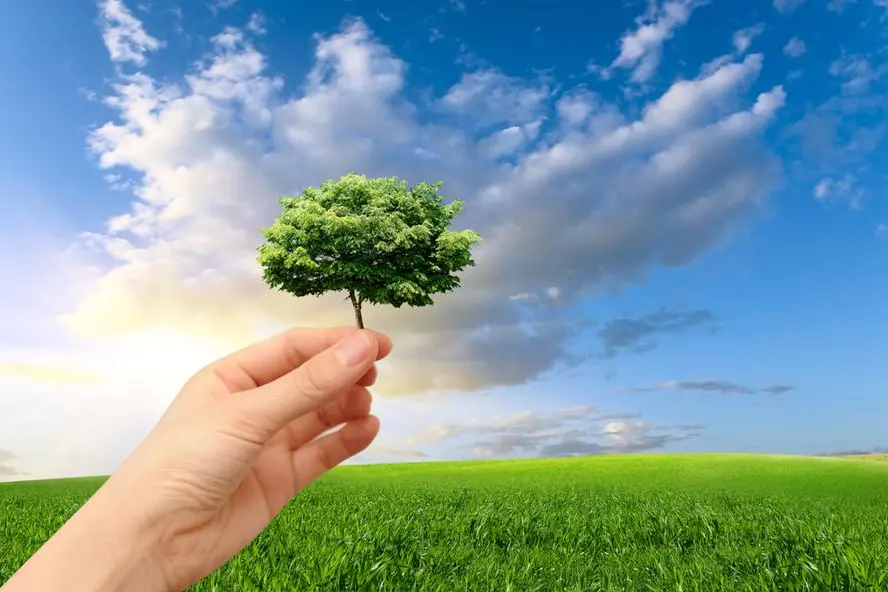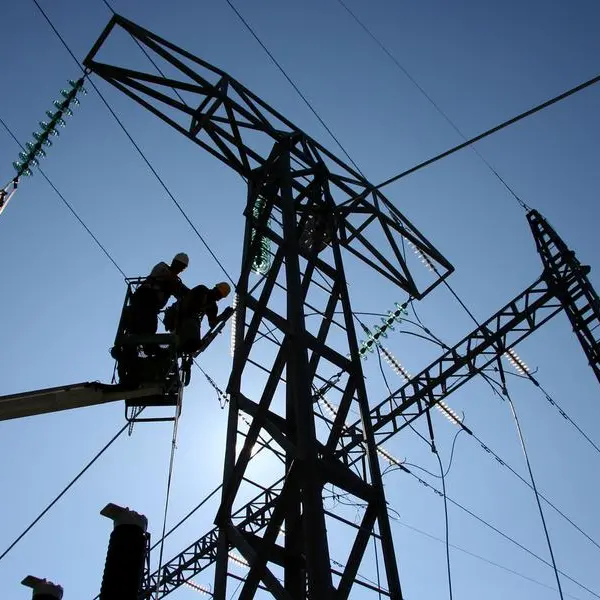PHOTO
BAGHDAD -- The United Nations office in Baghdad has ranked Iraq among the top five countries most affected by climate change, and in 39th place among the most water-stressed countries.
Official Iraqi statistics indicate that the overall desertification rate has reached 69.7% of the country's total area, which places a heavy burden on the ecological system in general. To address this reality, the Iraqi government has put in place a set of ambitious plans, including a tree-planting initiative to combat desertification and dust storms.
This initiative is classified as one of the most important government initiatives to address climate change and desertification in Iraq. Iraq plans to take a number of measures to reduce the phenomenon of desertification and increase dust storms, including the creation of green belts around cities to act as a deterrent to dust storms.
The Mayoralty of Baghdad has announced the resumption of work on the capital's green belt project, after a 20-year hiatus, covering an area of 940 acres west of the capital, including the planting of 120,000 trees. Last year, the Iraqi Central Bank announced the launch of development initiatives to combat desertification and climate change in cooperation with several government ministries and agencies, as well as civil organisations.
Other measures include a renewed focus on environmental monitoring, requiring industrial and service operators to obtain environmental permits from the Ministry of Environment. These permits require operators to comply with environmental regulations before being granted a permit to build factories or operate their businesses. Some programmes are also being implemented to support awareness and promote environmental culture among operators, which will have a positive impact on environmental conservation and improvement.
The Ministry of Water Resources plans to build 36 small dams to harvest rainwater during the coming year, distributed among the desert areas, as part of its plans to benefit from rainwater and store it. The ministry expects good rainfall during the autumn and winter seasons, according to Aoun Diab Abdullah, Iraqi Minister of Water Resources. He confirmed that the ministry is committed to this after completing the studies, designs, and initial surveys for these dams in the coming year. He explained that the sites for the dams to be built will be distributed between the western desert, the Wadi Samawah, the northern, southern, and eastern regions of the country.
Among the other positive aspects of the work of civil society organisations in northern Iraq is the focus of activists from several environmental organisations on water conservation through the promotion of artificial groundwater recharge projects, reforestation, and the removal of pollution from polluted areas.
The Iraqi plans and initiatives to address the negative effects of climate change come in the face of a number of risks, including drought, lack of vegetation, desertification, water scarcity, pollution, and the intrusion of seawater into the upper reaches of the river in southern Iraq. This has led to the disappearance of water reserves in lakes and water bodies, the drying up of large lakes that contribute to the national water reserve, such as the Habbaniyah and Sawa lakes in the west and south, and the decline in water levels in the Tharthar depression, which is the largest water storage area in central Iraq. In addition, more than 80% of the marshes in the south have dried up. This has all led to a decline in the individual water share from 5,900 cubic metres in 1977 to less than 240 cubic metres today.
The Iraqi Ministry of Environment has warned that Iraq is losing 250,000 square metres of agricultural land annually due to drought. It pointed out that the current water shortage has been unprecedented in Iraq for over 70 years, and that the water deficit will reach 11 billion cubic metres by 2035.
These factors and the phenomena arising from them have caused a major imbalance in the ecological balance in Iraq, a large migration of the population, especially in southern Iraq, a change in economic activities, and serious effects on the public health of the population, among other problems.
The Iraqi Ministry of Environment believes that strengthening cooperation between neighbouring countries and the region will provide more positive indicators and results in addressing the risks of climate change.
Minister of Environment Nizar Amedi emphasised the vital need for unified collaboration and solidarity. He highlighted that it's imperative for all stakeholders—government, public, private sector, and civil society organisations—to come together to tackle the challenges posed by climate change in the country.
Amedi affirmed that the forthcoming COP 28 conference will centre on both global and national endeavours aimed at lessening the detrimental impact of climate change and adapting to its adverse effects.





















